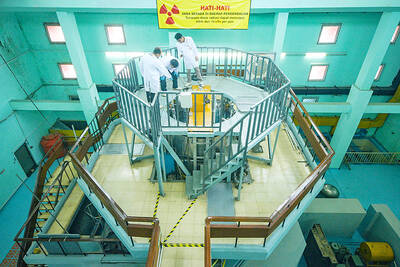US President Barack Obama formally renewed US sanctions on Sudan on Tuesday under his new strategy of keeping up pressure while offering incentives to the Khartoum government.
The one-year extension, which Obama made official in a notice to the US Congress, followed his announcement earlier this month of a new carrot-and-stick policy aimed at ending violence in Sudan’s Darfur region and the semi-autonomous South.
Obama, who during last year’s US presidential campaign urged a tougher line on Khartoum, has justified the shift as necessary to prevent the oil-rich African giant from falling further into chaos.
Unveiling the new strategy on Monday last week, the administration set goals to end war crimes in Darfur and reinforce a fraying 2005 peace deal between Khartoum and former southern rebels ahead of national elections next year and a 2011 referendum on southern secession.
Announcement of the new Sudan policy followed months of speculation that saw Obama’s special envoy for Sudan, Scott Gration — a proponent of more engagement with Khartoum — pitted against more skeptical members of the administration. The result, many analysts agreed, was a compromise.
US officials said Washington’s outreach to Khartoum would not include Sudanese President Omar Hassan al-Bashir, indicted in March by the International Criminal Court for war crimes while fighting mostly non-Arab rebels in Darfur.
The UN says more than 2 million people were driven from their homes and some 300,000 people died in the Darfur crisis, although levels of conflict have fallen since the mass killings of 2003 and 2004. Khartoum puts the death toll at 10,000.
In his message to Congress, Obama said the actions and policies of the Sudan government “pose a continuing unusual and extraordinary threat to the national security and foreign policy of the United States.”
“Therefore, I have determined that it is necessary to continue the national emergency declared with respect to Sudan and maintain in force the sanctions against Sudan to respond to this threat,” he wrote.
Sudan has been under US sanctions that have been expanded in stages since the late 1990s.
It is on Washington’s list of state sponsors of terrorism and a number of Sudanese officials have been targeted for individual asset freezes and travel bans.
The renewed sanctions restrict US trade with and investment in Sudan, block all property of the Sudanese government in the US and ban transactions with individuals and entities determined to be contributing to the conflict in Darfur.
“The renewal of these tough sanctions is a testament to the United States’ continued commitment to improving the lives of the Sudanese people,” a White House official said, speaking on condition of anonymity.
“If the government of Sudan acts to improve the situation on the ground and advance peace, there will be incentives; if it does not, there will be increased pressure from the United States and the international community,” he said.
The US has not specified what the incentives might be.

Four people jailed in the landmark Hong Kong national security trial of "47 democrats" accused of conspiracy to commit subversion were freed today after more than four years behind bars, the second group to be released in a month. Among those freed was long-time political and LGBTQ activist Jimmy Sham (岑子杰), who also led one of Hong Kong’s largest pro-democracy groups, the Civil Human Rights Front, which disbanded in 2021. "Let me spend some time with my family," Sham said after arriving at his home in the Kowloon district of Jordan. "I don’t know how to plan ahead because, to me, it feels

Poland is set to hold a presidential runoff election today between two candidates offering starkly different visions for the country’s future. The winner would succeed Polish President Andrzej Duda, a conservative who is finishing his second and final term. The outcome would determine whether Poland embraces a nationalist populist trajectory or pivots more fully toward liberal, pro-European policies. An exit poll by Ipsos would be released when polls close today at 9pm local time, with a margin of error of plus or minus 2 percentage points. Final results are expected tomorrow. Whoever wins can be expected to either help or hinder the

North Korea has detained another official over last week’s failed launch of a warship, which damaged the naval destroyer, state media reported yesterday. Pyongyang announced “a serious accident” at Wednesday last week’s launch ceremony, which crushed sections of the bottom of the new destroyer. North Korean leader Kim Jong-un called the mishap a “criminal act caused by absolute carelessness.” Ri Hyong-son, vice department director of the Munitions Industry Department of the Party Central Committee, was summoned and detained on Sunday, the Korean Central News Agency (KCNA) reported. He was “greatly responsible for the occurrence of the serious accident,” it said. Ri is the fourth person

SKEPTICAL: Given the challenges, which include waste disposal and potential domestic opposition, experts warn that the 2032 nuclear timeline is overambitious Indonesia is hoping going nuclear can help it meet soaring energy demand while taming emissions, but faces serious challenges to its goal of a first small modular reactor by 2032. Its first experiment with nuclear energy dates to February 1965, when then-Indonesian president Sukarno inaugurated a test reactor. Sixty years later, Southeast Asia’s largest economy has three research reactors, but no nuclear power plants for electricity. Abundant reserves of polluting coal have so far met the enormous archipelago’s energy needs, but “nuclear will be necessary to constrain the rise of and eventually reduce emissions,” said Philip Andrews-Speed, a senior research fellow at the